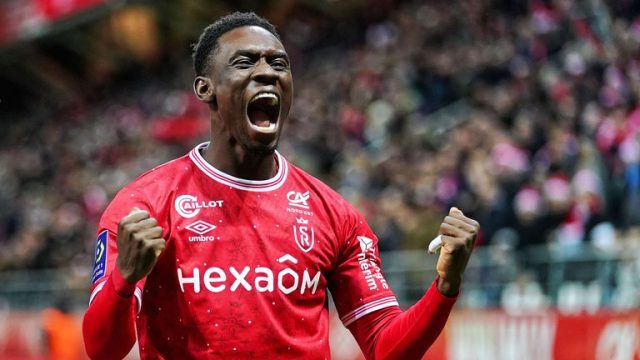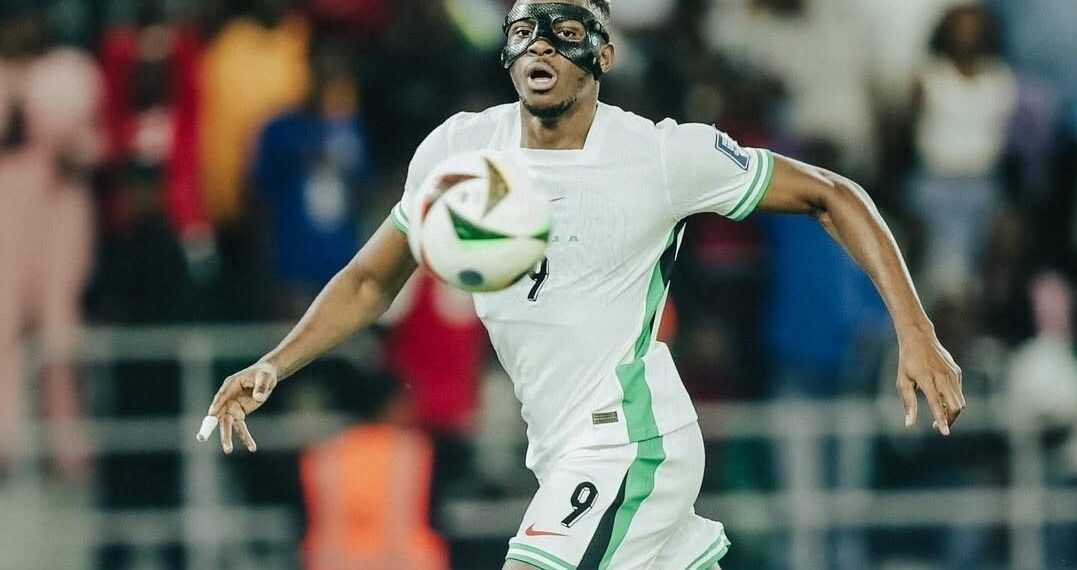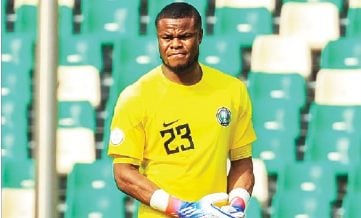On a lively Friday night in Austin, Texas, football fans across Nigeria, Ghana, and wider West Africa tuned in with keen interest as Folarin Balogun wrote another memorable chapter for the United States Men’s National Team, securing a hard-fought 1-1 draw against Ecuador. For many local supporters with a growing interest in international football, especially with the increasing representation of African diaspora talents like Balogun, the match was more than just a friendly—it was a testament to the impact global African talent can have on the world stage.
BALOGUN’S SHARP FINISH SPARKS EXCITEMENT IN AFRICA
Balogun, whose heritage connects him closely with Nigeria, delivered a crucial second-half equaliser in the 71st minute, demonstrating predatory instincts reminiscent of classic Super Eagles strikers. The goal came after he timed his run to perfection, meeting a slick through-ball from midfielder Malik Tillman and slotting beyond the Ecuadorian keeper with clinical precision. His celebrations resonated with many Nigerian fans who have followed his journey and debated his international allegiance, given his eligibility for both Nigeria and England before opting for the USA in 2023.
ECUADOR STRIKES FIRST: VALENCIA’S EXPERIENCE ON SHOW
It was, however, the South Americans who took an early lead, capitalising on a moment of vulnerability from the Americans. Veteran striker Enner Valencia, a name familiar to West African viewers due to his exploits in top European and South American leagues, showcased his trademark speed and composure. Racing onto a rapid counter-attack, Valencia evaded Crystal Palace’s Chris Richards with a deft first touch before driving a low shot past U.S. goalkeeper Matt Freese in the 24th minute.
STRONG SECOND HALF SHOWING: U.S. RESPONDS WITH DETERMINATION
Rather than crumbling under early pressure, the U.S. regrouped and pushed forward. According to post-match analysis from Austin-based sports journalist Rebecca James, “The U.S. showed organization and fighting spirit, particularly in the second half, which had echoes of the energy Nigerian fans bring to viewing centers during major matches.” Manager Mauricio Pochettino, who took over as U.S. head coach last year, was seen urging his players to remain focused and exploit Ecuador’s defensive gaps.
It was this tenacity that ultimately paid off. The Americans began dominating possession, creating more opportunities, and stringing together dynamic passages of play that frequently tested the Ecuadorian defence. Balogun’s equaliser capped off a period where the U.S. looked far more threatening and confident—qualities many fans in Nigeria noted as potentially decisive for America’s future World Cup campaigns.
POCHEttINO’S CHALLENGES AND PROGRESS
Pochettino, whose coaching record has drawn significant attention from international observers, has faced challenges in instilling consistency and tactical cohesion within the U.S. squad since his appointment. “Building a winning mentality takes time, especially in a team still integrating dual-national talents from across the world, including Africa,” noted Lagos-based sports analyst Chinedu Okeke. Pochettino’s side, however, appeared more composed and purposeful against Ecuador, especially considering the South American outfit is one of the continent’s form sides and is already qualified for the 2026 FIFA World Cup.
In his post-match comments, Balogun emphasised the positive takeaways: “It’s good to build momentum… Ecuador is a strong team, and we knew it was going to be difficult, but we’re disappointed not to get the win. But I think we were the better side and there were a lot of positives. There was some good combination play and we created a lot of chances.” Such optimism mirrors the aspirations of West African football fans who hope to see their diaspora players leading on the world stage.
WHY THIS MATCH MATTERS FOR NIGERIAN AND AFRICAN FANS
While the U.S. is not a traditional powerhouse in global football, recent recruitment of diverse talent—including players with roots in Africa—has elevated the team’s potential. For many football-loving Nigerians and Ghanaians, Balogun represents what is possible when young African talents are given a platform to shine internationally. An Abuja-based supporter, Ibrahim Yusuf, reflected: “We are proud to see someone like Balogun making an impact. It shows our football blood runs strong, no matter which jersey is worn.”
Ecuador’s strong FIFA ranking and established squad meant that the 1-1 draw was a significant result for the U.S., especially as a statement of intent ahead of their next major fixtures. Additionally, the increasing global visibility of African-descended players in key matches is a point of pride for the continent. According to the Confederation of African Football (CAF), more than 30% of African-born or heritage players are now representing non-African national teams at senior level, reflecting both the opportunities and challenges of global migration patterns in football.
LOOKING AHEAD: FUTURE FIXTURES AND LOCAL IMPLICATIONS
With the next friendly match set against Australia in Colorado, U.S. supporters are hopeful that Balogun’s prolific form continues, while Pochettino aims to fine-tune his tactics ahead of more competitive matches. For Nigerian and West African fans, the ultimate question remains: what impact will diaspora talents like Balogun have on football’s evolution, both in Africa and abroad?
Locally, some have debated whether the Nigeria Football Federation (NFF) is doing enough to attract dual-nationality players, citing Balogun’s decision to play for the U.S. as a lost opportunity for the Super Eagles. Ghanaian fans have had similar discussions after missing out on other diaspora stars in recent years. Many analysts argue that intentional policies and better outreach could bolster Africa’s own national teams with returning diaspora talent.
GLOBAL FOOTBALL AND THE DIASPORA CONNECTION
Balogun’s rise is part of a broader trend where players with African roots are shaping the international football conversation. From former Ghanaian-eligible star Eddie Nketiah leading the line for Arsenal, to Nigerian-born talent Joe Aribo shining in Europe, the influence is undeniable. As football’s global village expands, the talent pipeline linking Africa to major leagues and nations grows ever stronger.
As the U.S. prepares for its next fixtures and the world looks ahead to the 2026 World Cup co-hosted by the U.S., Canada, and Mexico, the question persists: how can African nations better engage with their diaspora stars to ensure the continent reaps the benefits of its vast footballing talent?
CONCLUSION: FOOTBALL UNITES, TALENT TRANSCENDS BORDERS
The 1-1 stalemate between the U.S. and Ecuador may appear routine in the record books, but for Nigerian and West African football followers, it’s another reminder that African roots are leaving indelible marks on global football. With every pass, goal, and celebration, players like Folarin Balogun continue to unite fans across continents, sparking debates about allegiance, talent development, and national pride.
How do you feel about Nigerian and African diaspora stars choosing to represent other nations? Should local football federations do more to attract these talents, or is this simply the new reality of global sports? Share your thoughts in the comments below and let your voice be heard!
Let’s keep the conversation going! Follow us on Facebook, X (Twitter), and Instagram for the latest updates, exclusive interviews, and more. You could be the next contributor—don’t miss your chance!










